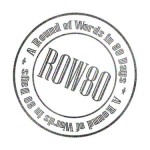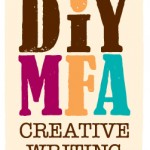This week, I read Love That Dog by Sharon Creech as the first of the verse novels for the Verse Novel Challenge.
In this story, the protagonist Jack resists his teacher’s assignment to write poems in a weekly journal. As he responds to his teachers comments and the poems he reads in class, we learn more about Jack, his dog Sky and his story. What I especially liked about this book was how we only hear Jack’s voice and his side of the dialogue with his teacher, but from his responses, we can infer what the teacher is saying. In taking this approach (rather than giving us also the teacher’s voice) Creech puts the reader in Jack’s shoes and allows us to become fully absorbed in the story.
I’m not usually one to gush, but this book was so good I read it in one sitting. OK, I’ll admit, it’s also a really short book, so it’s not as though “one sitting” was really a stretch. (It was more like the dead time between two meetings.) Still, even if I had had some appointment to run off to, it would have been hard to tear myself away.
I wish I had read this book sooner and included it in my literature thesis because it’s a perfect example of the form of a book following function. In particular, the experience of reading the book makes us feel as though we are Jack, reading the poems in class (which Creech wisely includes in the back of the book for the reader’s reference) and talking to the teacher through poems.
And you can’t beat that first poem:
September 13
I don’t want to
because boys
don’t write poetry.Girls do.










 Call me Gabi (pronounced gah-BEE). I'm a writer, freelance teacher, and a lover of books and words. I'm also the instigator of DIY MFA. iggi's my sidekick, but he thinks he's the brains behind this operation.
Call me Gabi (pronounced gah-BEE). I'm a writer, freelance teacher, and a lover of books and words. I'm also the instigator of DIY MFA. iggi's my sidekick, but he thinks he's the brains behind this operation.
 ROW80 Check-In (2)
ROW80 Check-In (2) YA Cafe: Villains and Antagonists
YA Cafe: Villains and Antagonists Introducing Writer Fuel
Introducing Writer Fuel ROW80 Check-In (1)
ROW80 Check-In (1)